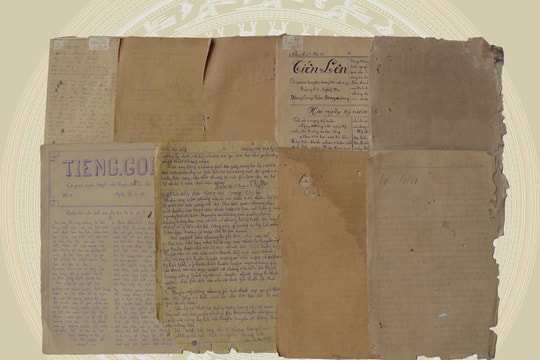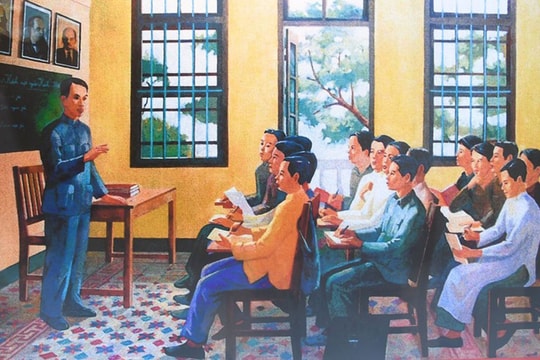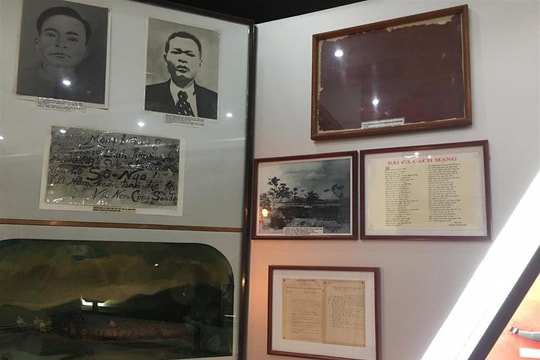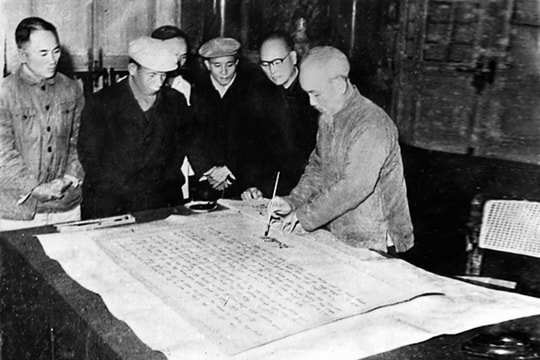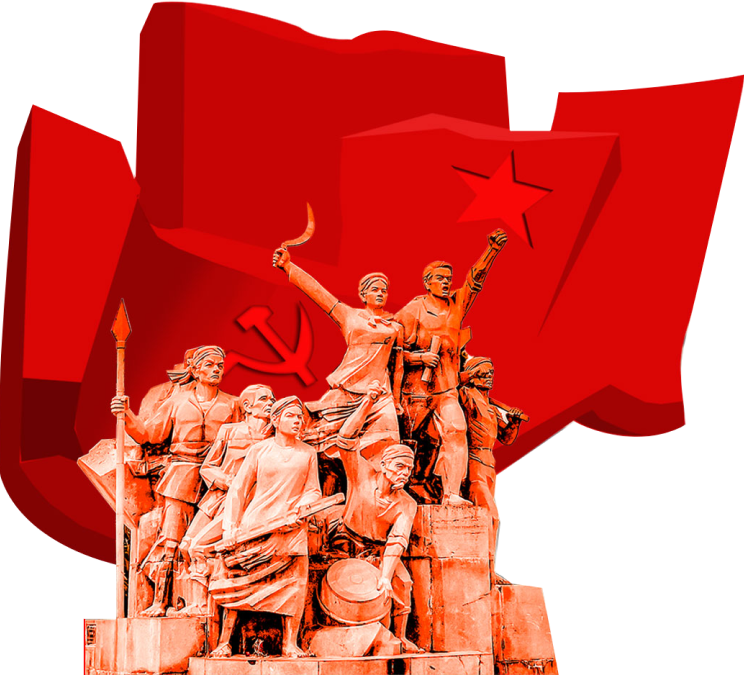Soviet spirit in the revolutionary pen of comrade Phan Dang Luu
The example of the revolutionary soldier and journalist Phan Dang Luu's search and struggle to overcome all circumstances to turn his pen into a sharp weapon always shines, has the power to move and inspire the people.
Comrade Phan Dang Luu was born on May 5, 1902 in Dong village, Trang Thanh commune, Quan Hoa commune (now Hoa Thanh commune), Yen Thanh district, Nghe An province - a land rich in historical and cultural traditions, the birthplace of many famous people, heroes and heroes who brought glory to their homeland and country.
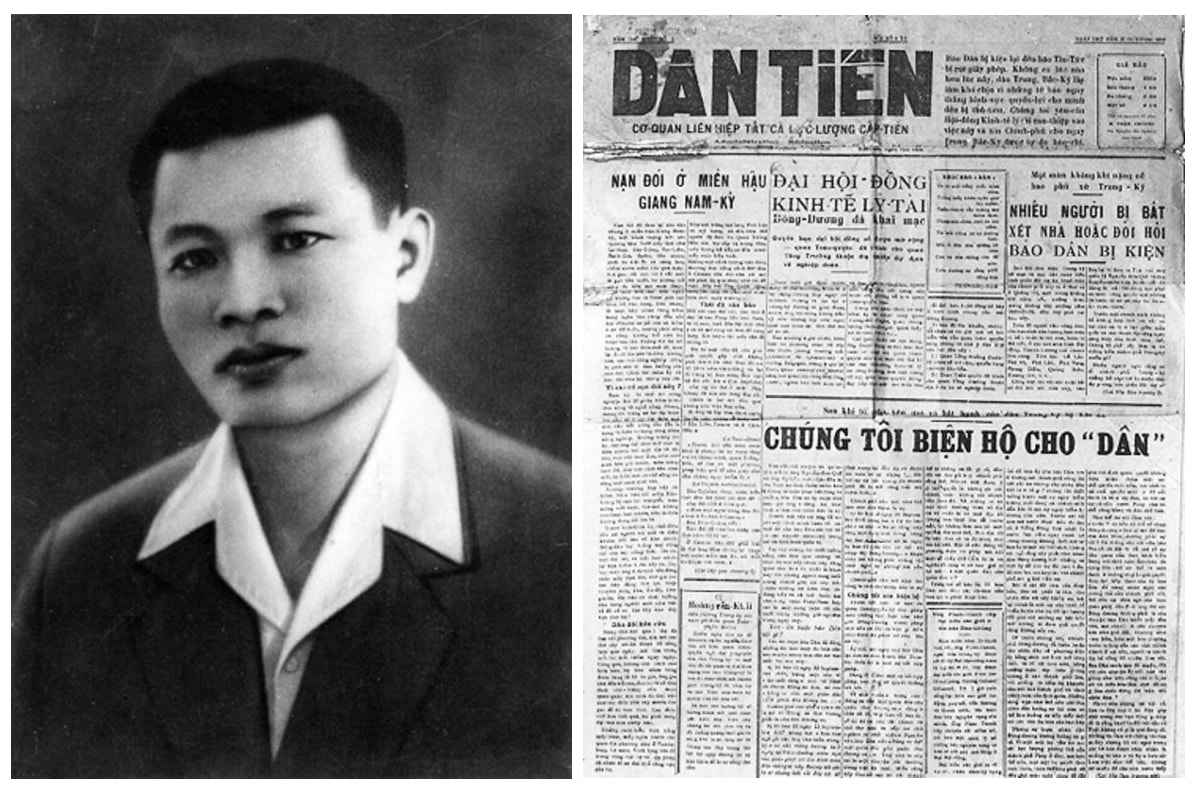
Born and raised in the context of a country suffering under the yoke of foreign invaders, witnessing the misery of enslaved people, the outstanding young man Phan Dang Luu soon became enlightened about the revolution and participated in patriotic organizations at that time such as: participating in the Phuc Viet Association (1925), Standing Committee member of the Tan Viet Revolutionary Party General Department (1928)...
In September 1929, comrade Phan Dang Luu was arrested by French secret police and taken to Vinh prison. Although many tricks were used but no information was obtained, the Southern Court of Nghe An province sentenced comrade Phan Dang Luu to 7 years of hard labor and 7 years of house arrest according to Verdict No. 2 dated January 21, 1930. The Verdict was approved by the Privy Council according to Decisions No. 94 and 146 dated March 7 and 27, 1930.(1)along with some high-ranking leaders of the Tan Viet Revolutionary Party such as Ton Quang Phiet, Tran Dinh Thanh... At the end of October 1930, he was exiled to Buon Ma Thuot.(2).
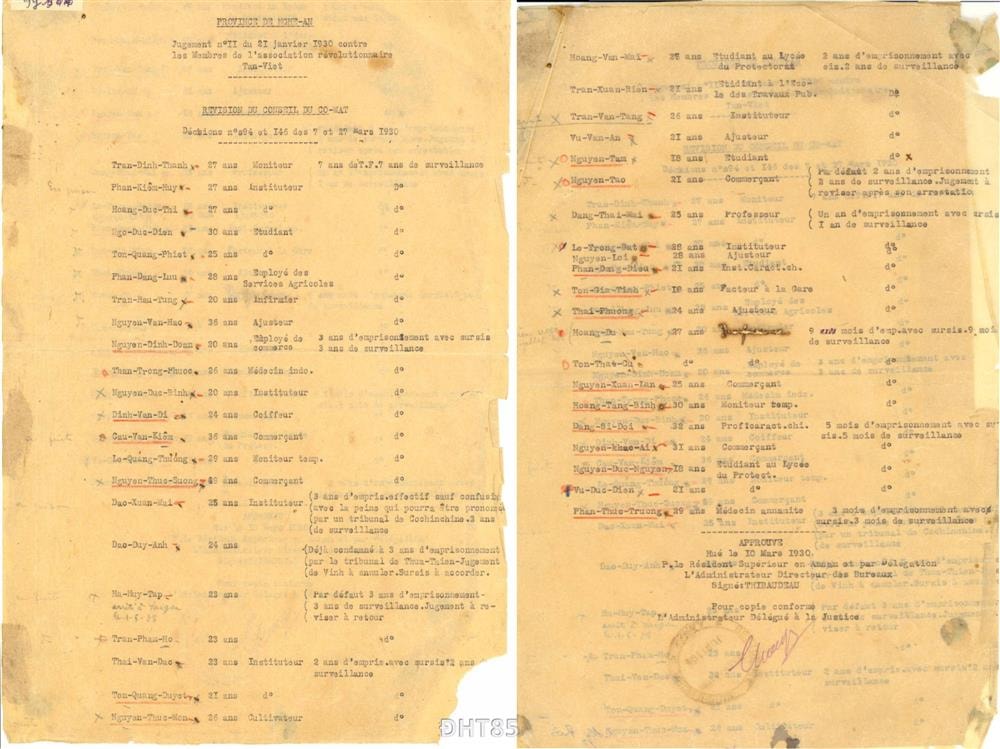
Located in the imperial prison system, Buon Ma Thuot prison was one of the most brutal places of detention and exile set up by the French colonialists in Vietnam to destroy the forces and crush the fighting spirit of communist party members throughout Central Vietnam. True to the nature of the "exile" prison, their plots and crimes were not only clearly shown in the food, accommodation, punishments, and forms of maximum exploitation of prisoners' labor, but also in the way they used people.
Buon Ma Thuot prison was a clear manifestation of the French colonialists’ sinister plot of “divide and rule”. Here, besides French officers, the enemy used mostly native Ede prison guards. The French colonialists took advantage of the language differences between the Kinh and the Montagnards to instill in the local people a bad image of communist prisoners in order to divide the nation and turn prison guards into machines to guard and brutally beat prisoners.
As President Ho Chi Minh once said: “… Turning misfortune into fortune, our comrades took advantage of their time in prison to meet and study theory. Once again, this proved that the enemy’s extremely barbaric policy of terror not only failed to hinder the progress of the revolution, but on the contrary, it became a kind of fire that tested gold, it trained the revolutionaries to be even more steadfast…” (3).
Not willing to accept the enemy's beatings and plots, comrade Phan Dang Luu and his comrades in the "Mutual Assistance Association"(4)flexibly transformed activities to turn imperial prisons into revolutionary schools.
Realizing the plot of the French colonialists, comrade Phan Dang Luu quickly learned the Ede language by memorizing the language every time he communicated with the native soldiers. Just a few months later, he was quite fluent in the Ede language and could teach it to other comrades so that everyone could talk to the native soldiers and influence them.
Regarding the diligence and intelligence of comrade Phan Dang Luu, Mr. Huynh Thuc Khang also commented in the newspaper Tiếng Dân number 757 published on January 2, 1935:“… He was a person who loved to research: having lived in Buon Ma Thuot for several years, he was fluent in the “moi” language, the “moi” word, and even the “moi” customs. The intellectuals of De village also had to respect him.…".
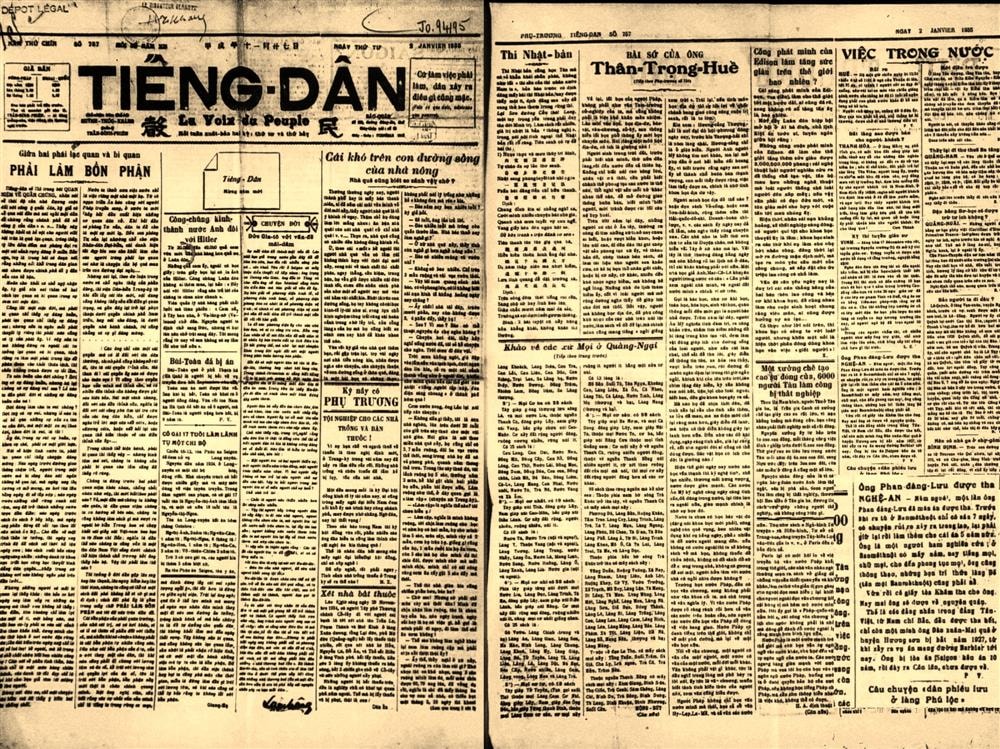
To serve political activities in prison, comrade Phan Dang Luu paid special attention to military propaganda work. With a sharp mind and a pen that had been tempered during his time working at “Quan Hai Tung Thu”(5), comrade Phan Dang Luu established a newspaper in the Ede language called “Yuăn-Êđê” (ie Kinh-Êde). This was a secret weekly newspaper, both a tool to enlighten Ede soldiers and an internal propaganda document.
The articles talked about the humiliation of losing the country; about the close relationship between the Ede and Kinh people who shared the same country; about the patriotic examples of political prisoners and the sympathy of the revolutionary prisoners themselves for the Ede people who were forced to do things they did not want to do... The newspaper pages with concise, simple, easy-to-understand language contributed to awakening the native guards to understand the nature of French colonialism, admire the good nature and noble sacrifice of the prisoners for their homeland and country, and significantly improved the relationship between prisoners and native guards.
In the increasingly deprived and difficult prison conditions, comrade Phan Dang Luu's pen seemed to have more fire:“… he picked up every scrap of old newspaper… Even when he was doing forced labor, he saw scraps of newspaper or dirty book pages thrown in the bushes, he would pick them up, wash them, and piece them together…”(6).
The articles on national solidarity, historical stories, and heroic sacrifices written by comrade Phan Dang Luu, both sharp and flexible, have become a means of training morality, political enlightenment, and fostering the fighting spirit of prisoners. Comrade Phan Dang Luu's writings, along with other cultural and artistic activities, have contributed to encouraging and motivating fellow prisoners in the strong and continuous struggles at Buon Ma Thuot prison.
Not only fighting within the prison, comrade Phan Dang Luu also wrote many articles in French, secretly sent them out to denounce the harsh prison regime and attracted much public attention.
In 1933, the prison guards caught the secret article and tortured him very cruelly:“…Mr. Luu wrote an article and gave it to me to send to the Saigon Public Opinion newspaper to denounce the brutal prison regime in Buon Ma Thuot. However, getting the article out was difficult… I discussed putting it in my hat, but Mr. Luu did not agree. Mr. Luu discussed with me and agreed to remove the soles of the sandals and store them away.,then closed it. Before we left, they checked it three times very carefully. They also cut the soap into small pieces. I was already sitting in the car with peace of mind when suddenly the guard called me out, they tore off my sandals, and immediately took out the thin Polya paper article that Mr. Luu and I had hidden…”(7).After this event, comrade Phan Dang Luu“… sentenced to an additional five years for making an anonymous, false and malicious accusation…”(8).
In mid-1936, the movement for freedom and democracy forced the French colonialists to release a number of Indochinese political prisoners, including comrade Phan Dang Luu. After being released from prison, he was trusted by the Party to hold many important positions such as member of the Provisional Executive Committee of the Central Region Party Committee (1936), member of the Central Party Executive Committee (1937), and was assigned to be in charge of the public and semi-public struggle movement in Hue and Central Vietnam.
With a clear political vision and a soft yet sharp pen, comrade Phan Dang Luu, along with comrades Le Duan, Nguyen Chi Dieu, Bui San, etc., led the struggle for democracy in Hue and Central Vietnam to many victories.
Hue was one of the fronts identified by the Party as extremely important, because this was the nerve center of the French colonialists and the feudal government of the Southern Dynasty at that time. Identifying the press as the forum, the most suitable weapon on the public and semi-public fronts of struggle, the mark and revolutionary mettle of comrade Phan Dang Luu was demonstrated through various changing roles: both building and directing newspapers, directly writing articles, and training, uniting and gathering the press force, especially young intellectuals.
With the aliases Tan Cuong, Phi Bang, Dong Tung, Muc Tieu, Thuong Tam... in the newspapers "Song Huong tuc ban", "Dan", "Dan Tien", the editorials, comments, and skits with class and fighting spirit of comrade Phan Dang Luu excellently expressed the Party's viewpoint, at the same time mobilizing the masses to stand up and fight in the Indochina Congress of Central Vietnam movement at that time.
In particular, the article “Exposing the liver and intestines for the people to know” by author Nghi Toet (Phan Dang Luu) in the newspaper “Song Huong tuc ban” No. 4 published on July 10, 1937 directly pointed out and named the traitors who sold out the people and harmed the country, and at the same time contributed to the election of 18 candidates from the Party to the Central Vietnam House of Representatives.
Next, the articles expressing the sharp thinking and reasoning of comrade Phan Dang Dang Lu in the newspaper "Dan" combined with the activities of the House of Representatives promoted the movement to fight against high taxes, heavy taxes, oppression, injustice, and to demand freedom of speech of the masses to develop strongly. The public and semi-public struggles defeated the project of the Head Tax and the Land Tax project proposed by the Resident of Central Vietnam, shaking the governing apparatus at its headquarters.
Assessing the results of the struggle during this period, our Party commented:“… In those elections, our comrades proposed very clear action programs. The election of our candidates in Hanoi, Saigon and 18 candidates in Central Vietnam who tended towards the Popular Front were very glorious victories for our Party…”(9).In that success, there were extremely important contributions in terms of leadership, direction as well as the pen - the excellent weapon of struggle of comrade Phan Dang Luu.
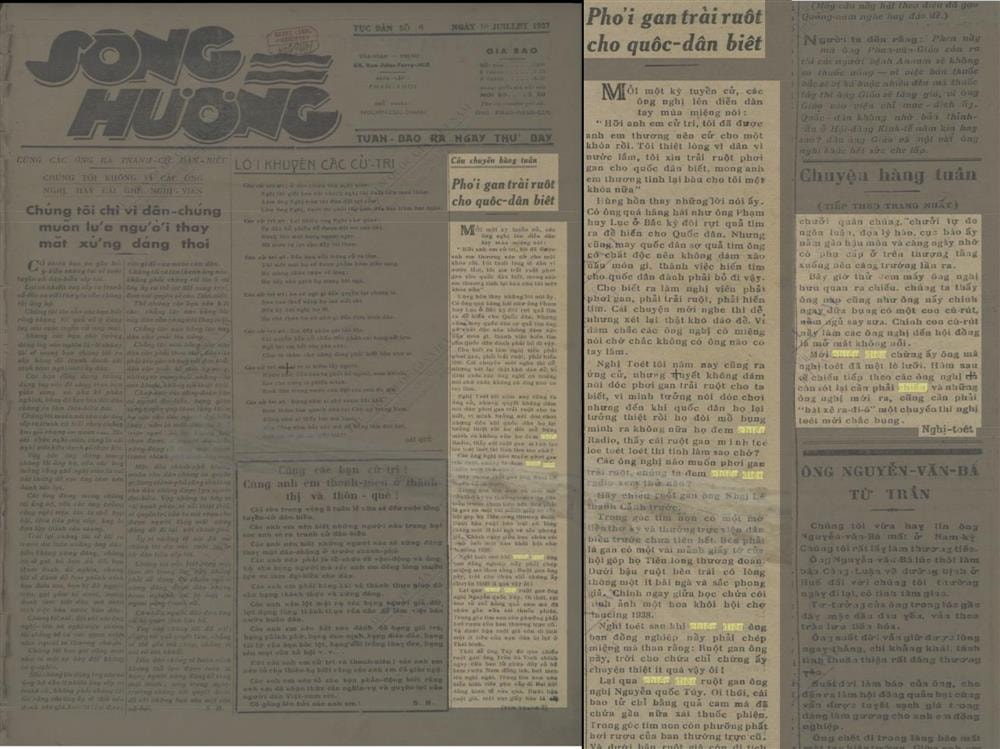
Along with his active journalism activities, during the period 1937-1939, comrade Phan Dang Luu also introduced to readers works of political theory and literary theory.valuable to foster patriotism, indomitable tradition of patriots for current and future generationssuch as: "Capitalist Society", "The Old World and the New World", "Poetry and Literature of Vietnamese patriots"... The revolutionary spirit and sharp pen of comrade Phan Dang Luu had a profound influence on revolutionaries in Nghe Tinh and Hue at that time such as: Ton Quang Phiet, Trinh Quang Xuan, To Huu, Nguyen Chi Thanh...
At the end of 1939, in the new historical situation, comrade Phan Dang Luu was summoned by the Party Central Committee and assigned to be in charge of the movement in the provinces of Nam Ky. Shouldering the new great tasks and responsibilities assigned by the Party, comrade Phan Dang Luu continued to make many contributions in outlining the Party's guidelines, strategies, and changing the direction of the revolution. Comrade Phan Dang Luu, together with the Nam Ky Regional Party Committee, brought the Nam Ky revolutionary movement to a new level until he fell at the Giong intersection, Xuan Thoi Tay village, Hoc Mon, Gia Dinh (now Xuan Thoi Thuong commune, Hoc Mon district, Ho Chi Minh City) on August 26, 1941.
The life and revolutionary career of comrade Phan Dang Luu have left their mark on the nation's golden history page with their steadfast spirit, lifelong struggle and sacrifice for the nation's independence and the people's prosperity. In particular, from the imperialist prison to the 1936-1939 democratic movement, the example of the search and struggle to overcome all circumstances to turn the pen into a sharp weapon of combat of the revolutionary soldier - journalist Phan Dang Luu always shines, has the power to move and inspire the people, especially the young generation./.
Note:
[1] Regarding the date of sentencing and the number of years of sentence of comrade Phan Dang Luu, there are still many documents with different figures. According toPhan Dang Luu: Biography - Works, Thuan Hoa Publishing House, 1998, p.27;Phan Dang Luu Biography, National Political Publishing House - Truth, 2015, p.100, all agree that the date of sentencing comrade Phan Dang Luu was November 21, 1929. Also according toPhan Dang Luu: Biography - Works, Thuan Hoa Publishing House, 1998, p.27;Phan Dang Luu Biography, National Political Publishing House - Truth, 2015, p.100;Nghe An-Communist examples, vol. 1, Nghe An Publishing House, 1998, p. 100, unanimously agreed that comrade Phan Dang Luu was sentenced to 3 years of hard labor.
Within the framework of this article, the author relies on the Verdict approved by the Privy Council, the original document in French, with a red seal signed by Léon Thibaudeau, kept at the Inventory and Preservation Warehouse, Nghe Tinh Soviet Museum to provide readers and researchers with a new source of information.
[2] Ton Quang Phiet: About comrade Phan Dang Luu, a staunch revolutionary intellectual, Journal of Historical Research, No. 147, 1972, p.11.
[3] Ho Chi Minh:Complete Works,Volume 10, National Political Publishing House, Hanoi, 2002, pp. 4-5.
[4] In October 1932, communist prisoners at Buon Ma Thuot prison contacted some medical staff of the prison to secretly establish a "Mutual Assistance Association" with the main task of helping sick prisoners, encouraging them to maintain their spirits, and protesting together when they were beaten...
[5] Progressive book and newspaper publishing agency of Hung Nam Association.
[6] Bui San: Some features of Phan Dang Luu (Memoirs), Journal of Historical Research, 1978, No. 4 (181), p. 50.
[7] Dau Khac Ham: Under the red flag, Nghe An Publishing House, 2019, pp. 76-77.
[8] Secret circular of Central Vietnam's Chief of Secret Police Sogny sent to the Chief of Secret Police in Vinh in October 1933 according to the French file of comrade Phan Dang Luu at the Nghe Tinh Soviet Museum.
[9] Complete Party Documents, Volume 6 (1936-1939), National Political Publishing House, 2000, p.273.

